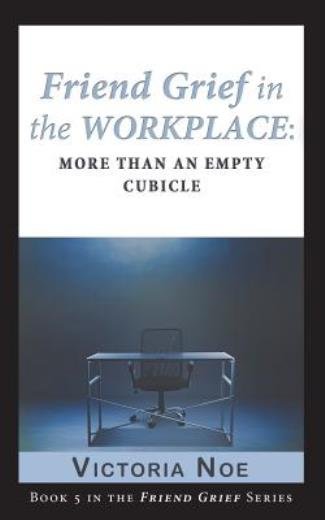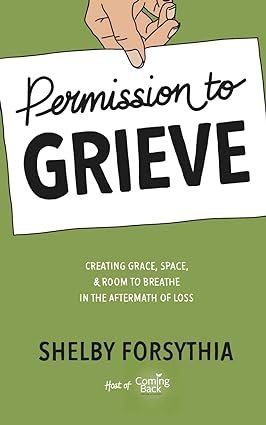When An Employee Dies: Grief in the Workplace
7 Minute Read
Grieving the Loss of a Workplace Family Member
Let’s face it. We all spend practically as much time with our “workplace” family as we do with our own family. We come to deeply know our colleagues; we know their strengths, their weaknesses, their quirks, and their life stories.
They can become our extended family.
The death of a person in a “workplace family” impacts both the individuals and the company.
So, when a co-worker dies, the work environment can feel challenging for workers. Even when death comes after a long-term illness, it can impact co-workers almost as though it was a surprise. Returning to the workplace after a death can be hard for people who worked closely with the deceased. Facing the empty office or cubicle, and their absence at meetings or the lunchroom – can be troubling and anxiety-provoking.
Those who have been impacted by the death of a colleague may experience these physical and psychological symptoms:
Irritability or impatient with co-workers
Feeling distracted or lacking focus and concentration
Inability to meet deadlines or participate fully in meetings
Feeling forgetful or foggy
Lacking in motivation
Symptoms of low-grade depression or anxiety
Fatigue or sleep disruption
Body aches or headaches from tension
When a Colleague Dies, it Helps to Have Help
As a grief counselor, I have supported many companies, of all sizes, as they navigate grief and loss in the face of a colleague’s death. Since the death of a colleague can be younger employees’ first encounter with grief, it can sometimes impact them in an outsized way. This is especially true if the death was sudden or happened at the workplace or in the presence of colleagues.
To add difficulty to the situation, grief resulting from a workplace member is often considered a “disenfranchised grief.” Grievers may not receive as much sympathy as they might expect from family and friends who might not fully understand the impact on the co-workers.
Grief is a universal, natural, and normal response to a significant loss of any kind. Grief is not linear; it comes with waves of emotion and different states of grief at any given time.
Typical grief reactions, which can appear at different times include:
Shock and Disbelief (surreal feeling that the death has not really happened)
Anxiety (especially if the death happened at work)
Guilt (“unfinished business” with the co-worker)
Sadness (deep sense of loss; random crying, thoughts wandering)
Trauma (re-living the incident or your body remembering the feelings you had at the time)
Fear (afraid that this could happen to others whom you know and like)
As you process the grief, some of the effects that can manifest during grief include:
Fatigue
Sleep disruption (not sleeping or sleeping too much)
Appetite change (overeating or not having an appetite)
Body aches from tension
Irritability (finding annoyances, reacting more harshly than usual)
Feeling distracted (lack of focus)
Impatience
Lack of motivation
Low-grade depression or anxiety
How to Handle Your Grief in the Workplace
Communicate to others that what you’re going through is very upsetting and disorienting. Ask for patience if you’re “not quite yourself” for a while.
Respect that everyone grieves differently. No two people had the exact same relationship with the deceased. Don’t presume that another co-worker is overreacting or underreacting, to the death. Various factors unique to each person determine the extent and nature of the grief.
Be open with your emotions. Don’t keep them inside. If you’re open, you’ll encourage others to feel their grief as well.
Ways to Cope with This Loss
There’s no workaround for grief. The only way to go forward is to find ways to cope during this period of time, however long it lasts, as smoothly as possible.
Try these 7 coping tools:
Acknowledge the loss. Encourage communication among co-workers to talk about the employee. Process the death together. Share stories about the colleague. Honor them with rituals and celebrations.
Acknowledge individual reactions: Be mindful to give each other space to grieve. If someone has to leave a room abruptly, let them do it. Don’t try to fix their grief.
Strategize. When you think about a situation that might create anxiety, try to come up with a plan to best handle it. Then you’ll be less surprised or triggered than if you were unprepared.
Grounding. Throughout the day, you may be caught off guard by your grief feelings. When they arise, try to stop and ground yourself. Breathe. It calms your body.
Honor your colleague. It’s important to spend time collectively creating ways in which to honor him/her/them. Enjoy their favorite foods, play their favorite music together once in a while to honor them.
Be resourceful. Nobody ever taught you how to grieve or what it’s like to lose an important part of your work life. Getting support for grief is not a sign of weakness. It’s healthy. Ask for professional help and read some books (see book list in my blog).
Seek professional support. Often, an employer will hire a professional grief counselor to hold bereavement supports, provide additional counseling or other educational programs to help the company adjust to the loss. Ask your manager or HR director.
In time you will adjust to the “NEW NORMAL” without your beloved colleague/friend.
Here’s a link to a Harvard Business Review article, Working Through the Death of a Colleague:
Ways that Employers Can Support Employees
Consider finding a grief counselor to facilitate bereavement counseling support groups for your employees.
Consider offering individual grief counseling for those who may be hit extra hard by the loss.
Consider giving a charitable donation to an organization important to the deceased. Gather input from everyone in the decision-making.
Consider holding a gathering (a meal) with the deceased’s family to show them how their family member was loved by his/her/their work “family.” It’s a good way to pay respects to the employee’s family as well.
Consider having the employees compile a collage of pictures or items associated with their co-worker to share with the family as a gift.
I’ve found that this kind of generosity is greatly appreciated by staffers. It shows employees the kind of caring and consideration for employees that comes from top management.
Supporting grievers in the workplace
The bottom line is that when grief impacts a workplace, the most effective strategy is to support the grievers. This can include educating them about loss, validating their grief, providing coping skills that will help them adjust to a workplace without their colleague, and giving them a space to process their grief within the workplace community.






